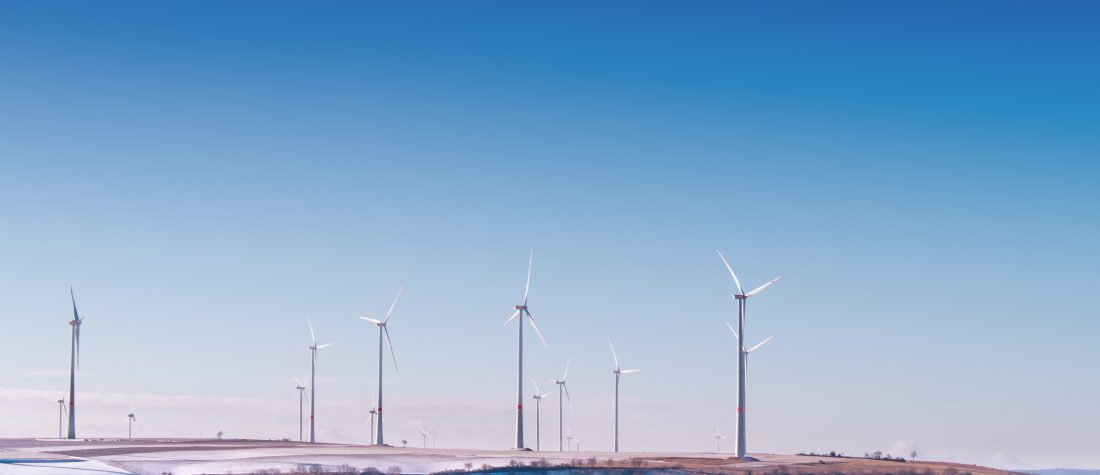But for a handful of hardcore survivalists, an announcement caught most the EU’s onlookers off-guard. Earlier this month the (now former) defence minister Klaudia Tanner alerted her Austrian compatriots to the potential need to stockpile food if blackouts arise.
Others have been hedging their bets for a while, too. In May Spanish minister Teresa Ribera penned a letter to Frans Timmermans (European Commissioner and VP for the Green Deal) pleading for bloc-wide legislation to prevent power outages from disproportionately hitting the least well off. These were merely the opening salvos in what has since shaped up to be a full-fledged energy crisis in Europe, with a skyrocketing surge in electricity prices across the continent that’s hampering the prospects of a rapid post-Covid economic recovery.
Bit of a mess
Aitor Hernández-Morales (of Politico Europe) and Thomas Pellerin-Carlin (of the Jacques Delors Institute) chalk up this price surge to three distinct factors. First, the post-Covid recovery has boosted demand globally, with economies trying to make up for their Covid losses. An increase in demand in energy was compounded by a worldwide spike (ongoing since the pre-pandemic days) in the price of natural gas, which accounts for a whole quarter of the EU’s energy mix. Oil accounts for a third, and nuclear and coal for 10 per cent each. The EU’s dependence on fossil fuels, though projected to decrease as the bloc moves toward its goal of net zero by 2050, nonetheless remains a major weakness, both environmentally and geopolitically. It may be less than oil, but burning gas still emits considerable levels of carbon dioxide. And then there’s Vladimir Putin, whose gas-producing fiefdom of Russia supplies fully a third of Europe’s gas. The strongman is seizing on this global context to reduce further on-the-spot sales of gas to Europe and lure EU member states into signing (discounted) long-term deals with Gazprom, the country’s energy giant.
Telling the truth
For Pellerin-Carlin, this crisis exposes the sheer lack of progress in Europe’s transition towards clean sources of energy. In his view, the EU could easily wean itself off its dependence on gas if enough long-term foresight was mustered to deploy new technologies. Heating, industry, and electricity are the three main consumers of natural gas in the continent. The first, Pellerin-Carlin argued, could be entirely decarbonized by implementing solar heating and retro-fitted buildings on a mass scale, something Europe is lagging on. Hernández-Morales, somewhat less gung-ho about the potential of renewables and green technologies to spare Europe any further gas crunches of this sort in the near future, argued that “the EU needs to be honest to consumers.” Massively shifting to renewables, even along the most ambitious timeline, is unlikely to drastically cut energy prices in the near-term because the EU lacks enough renewable storage capacity. If anything, prices would rise.
Stranger things
The second factor at play in the price surge is the peculiar structure of the EU’s energy market. The bloc operates a wholesale, marginal market structure, meaning that an increase in the price of gas is also translated into higher prices for electricity generated from other energy sources. “Imagine you go to the butcher’s shop and ask for some standard ham and some filet mignon”, said Hernández-Morales, “And end up paying everything at the filet mignon’s price”. This intriguing pricing structure is a French invention of the 1960s, but the country’s current economics minister Bruno Le Maire has expressed interest in reforms that would decouple the price of electricity—nearly 70 per cent of which France generates from nuclear power—from that of gas, in order to buffer the effect of its oscillations.
Both Pellerin-Carlin and Hernández-Morales deemed that this would be unlikely. For one thing, no country complained about this market structure when the going was good and prices were stable. Secondly, allowing utility companies to recoup the costly investments they make in new generating capacity and their operating expenses was the driving rationale behind the marginal market structure. Given the multiple interests implicated across borders, this elaborate jigsaw puzzle may be as good as it gets and is unlikely to be reformed anytime soon. Better cross-border coordination of the EU’s energy storage capacity, our guests agreed, is a different matter. The EU already has one of the world’s best-connected grids, which is not the case of the US—think of Texas, where the surge in gas prices led to blackouts back in February when electricity couldn’t be delivered on time from nearby states. Such a policy could further reduce the likelihood of blackouts in Europe by moving electricity from the more energy-endowed countries to the rest.
Watching for the wind
Both analysts agreed that blackouts are likelier this year than they’ve been in a long time, although it’s hard to judge exactly how likely that is. European politicians (more so than ever) will keep an eye on the weather, hoping we avoid record lows that would trigger a spike demand and accompanying dramatic consequences. The way out of this crisis in the long term is to accelerate Europe’s energy transition away from fossil fuels and into renewables, which should now focus on moving away from natural gas and its unpredictable price curve. Germany’s incoming traffic light coalition of the “red” SDP, the “yellow” FDP, and the greens has committed to phasing out coal by 2030, two decades after Angela Merkel famously pledged to hasten the shuttering of Germany’s nuclear power program following the Fukushima disaster of 2011. But the transition is a long-haul effort. In the meantime, Europe will be left bracing for a very cold winter.
Jorge González-Gallarza (@JorgeGGallarza) and François Valentin (@Valen10Francois) are co-hosts of the Uncommon Decency podcast on Europe (@UnDecencyPod). Please consider supporting their show on Patreon: patreon.com/UnDecencyPod.


